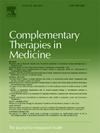治疗牛皮癣的草药:系统综述
IF 3.5
3区 医学
Q1 INTEGRATIVE & COMPLEMENTARY MEDICINE
引用次数: 0
摘要
牛皮癣是一种受遗传和环境因素影响的慢性皮肤病,影响全球约2%的人口。治疗方法从轻度到中度的局部用药到中度到重度的全身治疗。牛皮癣患者越来越多地使用包括草药在内的补充和综合医学,其中草药是最普遍的选择。方法本系统评价遵循PRISMA指南和Cochrane推荐,事先注册。在Medline/PubMed、Scopus和Cochrane Central Register of Controlled Trials中进行了检索,直到2024年6月。纳入标准包括随机对照试验(rct)评估草药治疗牛皮癣患者的任何年龄。数据提取和偏倚风险评估由两位作者独立完成,差异通过讨论解决。结果共纳入20项rct,共1115例患者。不同研究的总体偏倚风险各不相同。评估的草药干预措施包括芦荟、鳄梨油、洋甘菊南瓜籽油凝胶、天然靛蓝、库库伊油、黄樟、姜黄、圣约翰草和各种复杂的草药制剂。一些草药疗法,如Mahonia aquifolium和Indigo naturalis,显示出减轻牛皮癣严重程度的希望,而其他草药则显示出好坏参半的结果。结论sherbal疗法为银屑病的治疗提供了多种选择,但需要进一步的研究来阐明其安全性和真正的有效性。医疗保健提供者应与患者共同决策,考虑个人偏好和治疗目标,同时保持警惕,指导循证治疗。本文章由计算机程序翻译,如有差异,请以英文原文为准。
Herbal medicine for treating psoriasis: A systematic review
Background
Psoriasis, a chronic skin condition influenced by both genetic and environmental factors, affects approximately 2 % of the global population. Treatment approaches range from topical agents for mild to moderate cases to systemic therapies for moderate to severe forms. Complementary and integrative medicine, including herbal remedies, is increasingly utilized by psoriasis patients, with herbal medicine being the most prevalent choice.
Methods
This systematic review adhered to PRISMA guidelines and Cochrane recommendations, with prior registration. Searches were conducted in Medline/PubMed, Scopus, and the Cochrane Central Register of Controlled Trials through June 2024. Inclusion criteria encompassed randomized controlled trials (RCTs) evaluating herbal therapies in psoriasis patients of any age. Data extraction and risk of bias assessment were performed independently by two authors, with discrepancies resolved through discussion.
Results
A total of 20 RCTs involving 1115 patients were included. Overall risk of bias varied across studies. Herbal interventions evaluated included Aloe vera, avocado oil, chamomile-pumpkin seed oleogel, indigo naturalis, kukui oil, mahonia aquifolium, turmeric, St. John’s wort, and various complex herbal preparations. Some herbal therapies, such as Mahonia aquifolium and Indigo naturalis, showed promise in reducing psoriasis severity, while others demonstrated mixed results.
Conclusions
Herbal therapies present a diverse array of options for psoriasis management, but further research is essential to elucidate their safety profile and true effectiveness. Healthcare providers should engage in shared decision-making with patients, considering individual preferences and treatment goals while remaining vigilant in guiding towards evidence-based treatments.
求助全文
通过发布文献求助,成功后即可免费获取论文全文。
去求助
来源期刊

Complementary therapies in medicine
医学-全科医学与补充医学
CiteScore
8.60
自引率
2.80%
发文量
101
审稿时长
112 days
期刊介绍:
Complementary Therapies in Medicine is an international, peer-reviewed journal that has considerable appeal to anyone who seeks objective and critical information on complementary therapies or who wishes to deepen their understanding of these approaches. It will be of particular interest to healthcare practitioners including family practitioners, complementary therapists, nurses, and physiotherapists; to academics including social scientists and CAM researchers; to healthcare managers; and to patients. Complementary Therapies in Medicine aims to publish valid, relevant and rigorous research and serious discussion articles with the main purpose of improving healthcare.
 求助内容:
求助内容: 应助结果提醒方式:
应助结果提醒方式:


